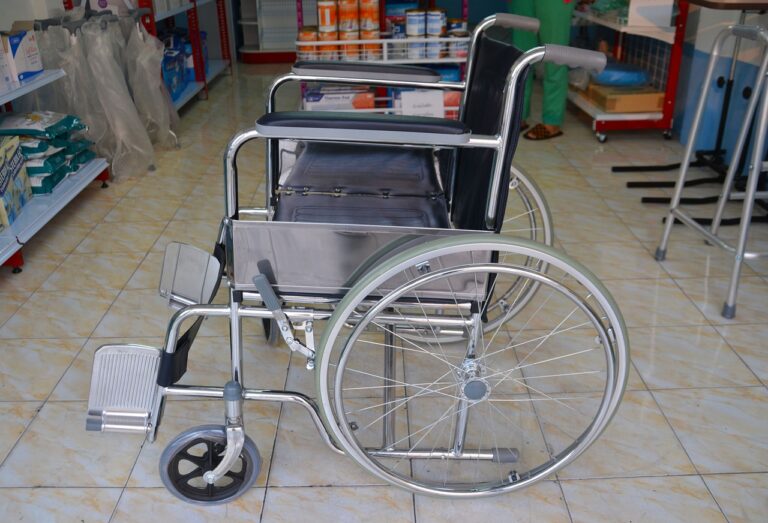Understanding the Link Between Diabetes and Women’s Health
sky247 com login password, gold365 game login, gold 365 green: Diabetes is a condition that affects millions of people worldwide, but did you know that women face unique challenges when it comes to managing this chronic disease? In this article, we’ll explore the link between diabetes and women’s health, discussing the impact of diabetes on women’s bodies, the risk factors that make women more susceptible to developing diabetes, and the importance of proper management and prevention.
Understanding the Link Between Diabetes and Women’s Health
1. Diabetes and Pregnancy
Pregnant women with diabetes are at a higher risk of complications such as high blood pressure, premature birth, and birth defects. It’s crucial for women with diabetes to closely monitor their blood sugar levels during pregnancy and work closely with their healthcare provider to manage their condition.
2. Polycystic Ovarian Syndrome (PCOS)
PCOS is a common condition that affects women of reproductive age, and it is often associated with insulin resistance, which can lead to the development of type 2 diabetes. Women with PCOS should be screened regularly for diabetes and work with their healthcare provider to manage their risk factors.
3. Menopause and Diabetes
The hormonal changes that occur during menopause can impact a woman’s blood sugar levels and make managing diabetes more challenging. Women going through menopause should pay close attention to their diet, exercise routine, and medication regimen to ensure their diabetes is well-controlled.
4. Gender-specific Risk Factors
Women have unique risk factors for diabetes, such as gestational diabetes, PCOS, and a history of heart disease. It’s important for women to be aware of these risk factors and take proactive steps to prevent or manage diabetes.
5. Mental Health Impact
Living with a chronic condition like diabetes can take a toll on a woman’s mental health. It’s essential for women to prioritize self-care, seek support from loved ones or a mental health professional, and practice stress-reducing activities such as yoga or meditation.
6. Importance of Regular Screenings
Regular screenings for diabetes are crucial for women, especially those with risk factors such as a family history of diabetes, obesity, or a sedentary lifestyle. Early detection and intervention can help prevent complications and improve overall health outcomes.
7. Healthy Lifestyle Choices
Maintaining a healthy lifestyle is key to managing diabetes and preventing complications. Women should focus on eating a balanced diet, staying physically active, getting regular exercise, and avoiding smoking and excessive alcohol consumption.
8. Support Networks
Building a strong support network can make a significant difference in managing diabetes. Connecting with other women living with diabetes, joining a support group, or working with a diabetes educator can provide valuable resources and encouragement.
9. Diabetes Management During Different Life Stages
Women may face unique challenges in managing diabetes during different life stages, such as pregnancy, menopause, or aging. It’s important for women to work closely with their healthcare provider to adjust their diabetes management plan as needed.
10. Prevention is Key
Preventing diabetes is possible with healthy lifestyle choices such as maintaining a healthy weight, eating a balanced diet, staying active, and monitoring blood sugar levels regularly. Women should prioritize prevention through regular screenings, education, and proactive health management.
In conclusion, the link between diabetes and women’s health is complex and multifaceted. By understanding the unique challenges that women face in managing diabetes, taking proactive steps to prevent the disease, and prioritizing self-care and support, women can live healthy and fulfilling lives despite their diagnosis. With proper management and support, women with diabetes can thrive and continue to inspire others with their strength and resilience.
FAQs
Q: Can diabetes be cured?
A: Diabetes is a chronic condition that cannot be cured, but it can be managed effectively with lifestyle changes, medications, and regular monitoring.
Q: How often should women with diabetes see their healthcare provider?
A: Women with diabetes should see their healthcare provider regularly for check-ups, screenings, and to adjust their treatment plan as needed.
Q: What are the warning signs of diabetes in women?
A: Warning signs of diabetes in women may include frequent urination, increased thirst, unexplained weight loss, fatigue, blurred vision, and slow wound healing.
Q: Is it safe for women with diabetes to have children?
A: With proper planning, monitoring, and care, women with diabetes can have safe and healthy pregnancies. It’s important for women to work closely with their healthcare provider to manage their diabetes during pregnancy.
Q: Are there support groups for women with diabetes?
A: Yes, there are numerous support groups and online communities specifically for women with diabetes, where women can find encouragement, resources, and advice from others living with the condition.







